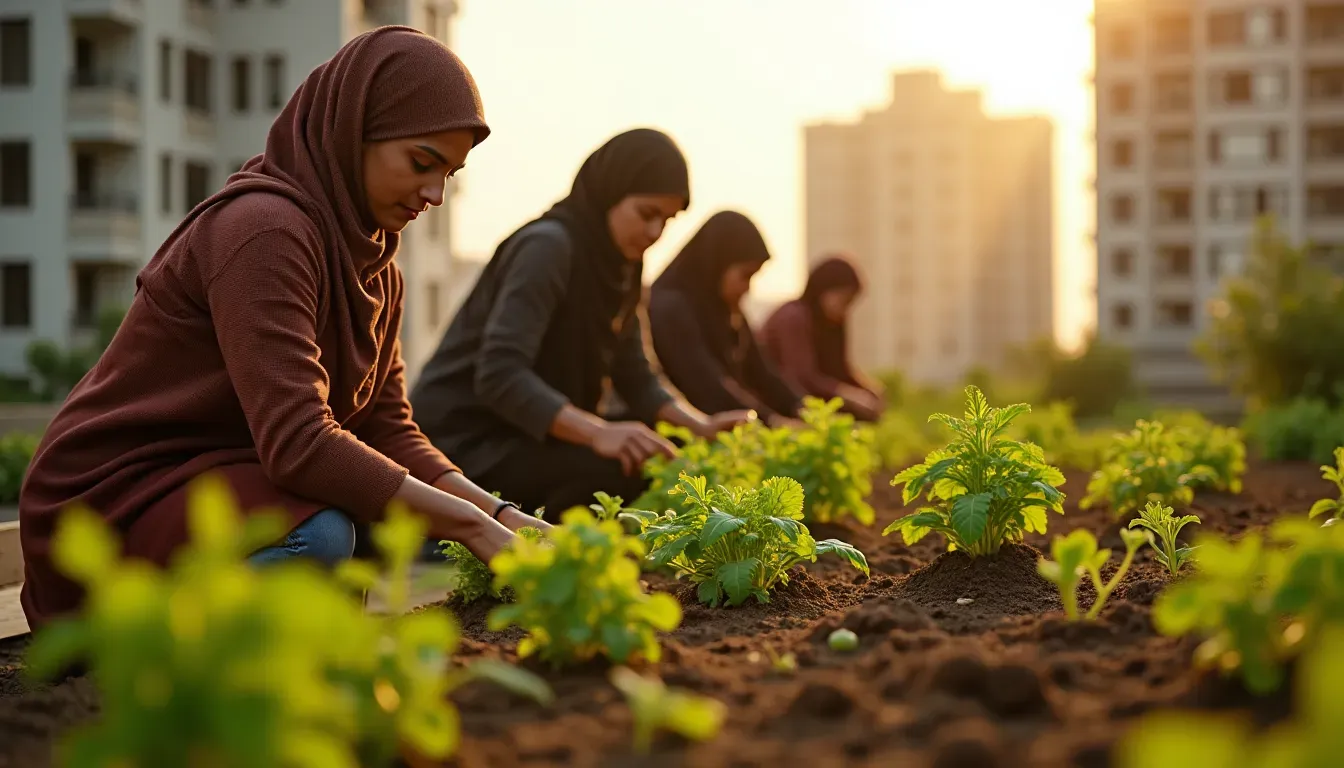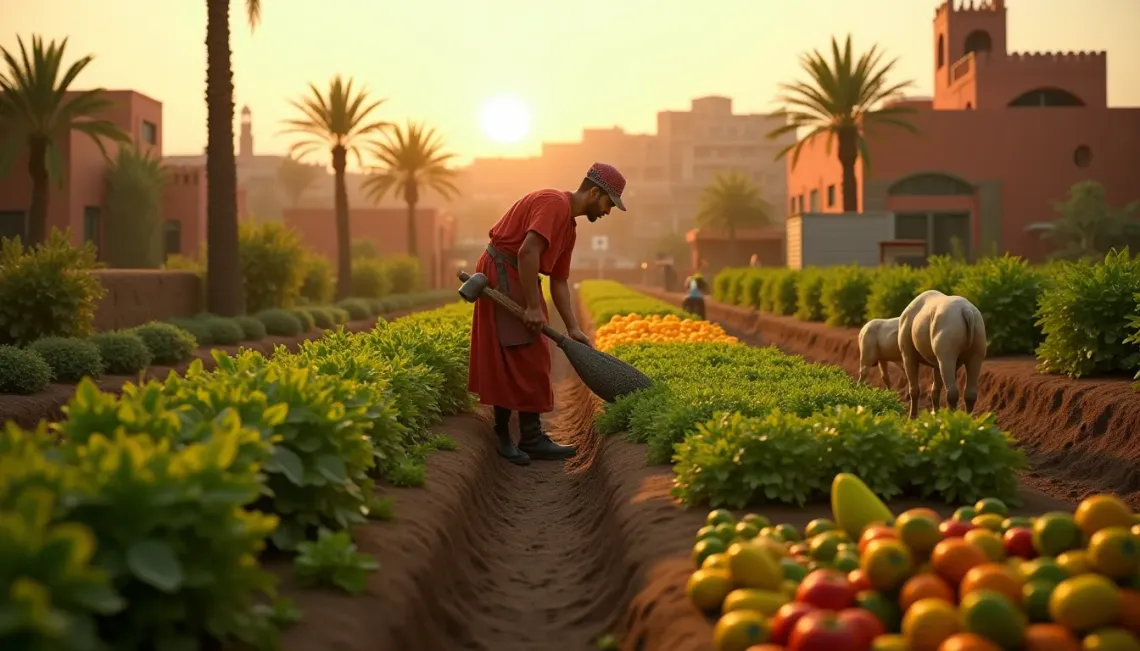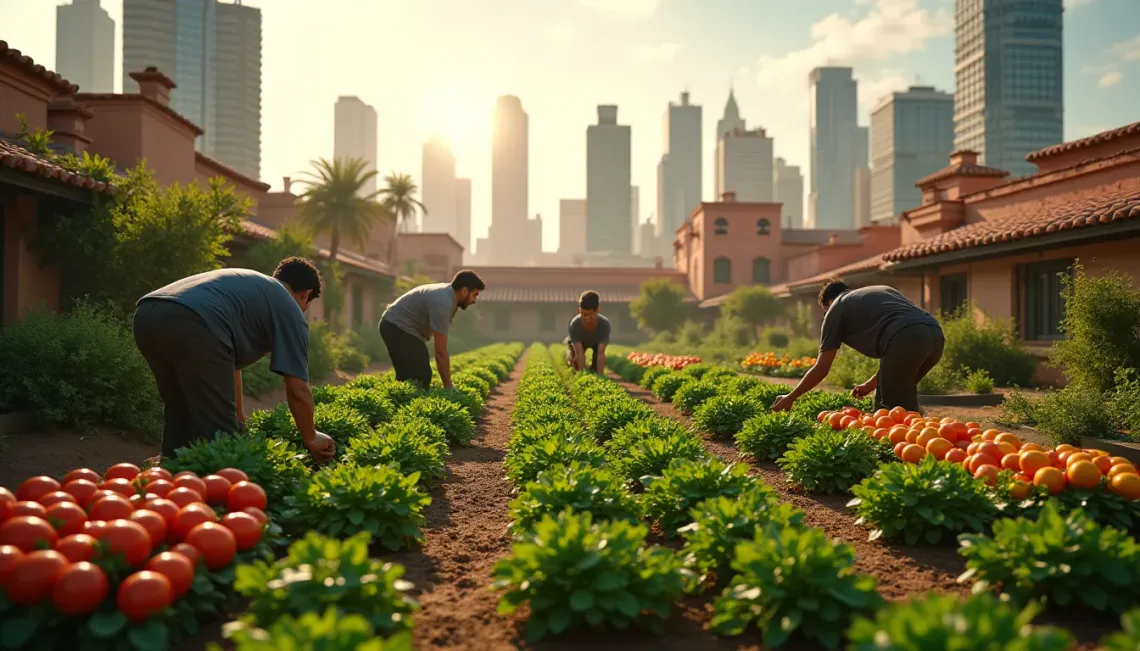Urban farming is transforming communities worldwide by promoting sustainable agriculture and empowering marginalized groups. In Morocco, this innovative practice is proving to be a powerful tool for the empowerment of Moroccan women. As Moroccan society evolves, integrating urban farming into its cities offers women not only economic opportunities but also a sense of agency and community development.
How Urban Farming Is Empowering Moroccan Women
For Moroccan women, urban farming provides more than just a sustainable source of income. It enables women to connect with their roots while contributing to an environmentally-friendly lifestyle. By participating in sustainable agriculture, women are formulating solutions for food security, reducing their carbon footprint, and fostering self-sufficiency.
The Economic Benefits of Urban Farming
Investing in urban farming allows Moroccan women to gain financial independence. Many rural women have traditional knowledge of agriculture, which they can apply in urban settings. By growing produce on rooftops or vacant lots, they can sell fresh, organic products at local markets. This not only boosts their income but also reinforces the local economy.
Fostering Community Development
Through urban farming, Moroccan women are fostering stronger community ties. These initiatives create opportunities for women to collaborate, share resources, and support each other. Participating in community gardens leads to the creation of women's cooperatives, facilitating the exchange of knowledge and skills that enhance community development.
Urban Farming and Sustainable Agriculture Practices
Sustainable agriculture is at the heart of urban farming. Moroccan women leading these projects practice eco-friendly farming methods, such as composting, water conservation, and companion planting. These methods not only ensure the production of healthy food but also conserve Morocco's natural resources for future generations.
- Composting to enrich soil naturally
- Efficient water conservation through drip irrigation
- Companion planting to control pests and improve yields
Such sustainable practices make urban farming a scalable model for addressing global challenges like climate change and food insecurity.
Related Opportunities and Future Prospects
To further propel the empowerment of Moroccan women through urban farming, there are various complementary opportunities. Educational programs on sustainable agriculture can amplify their impact by providing technical skills and knowledge. Additionally, partnerships with NGOs and governmental bodies can provide necessary funding and resources.
Urban farming as a path to empowerment not only improves the lives of Moroccan women but also encourages community solidarity and environmental stewardship. As these women transform vacant spaces into thriving urban farms, they set a precedent for sustainable urban living and community development.
In conclusion, urban farming is more than a trend; it is a movement that relieves economic burdens and cultivates empowerment. For Moroccan women, this is a path toward a more inclusive and sustainable future, one garden at a time.




